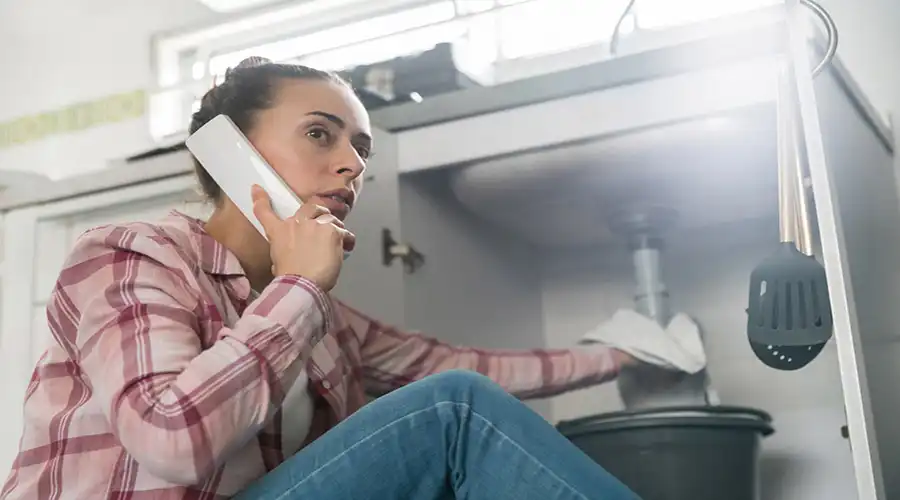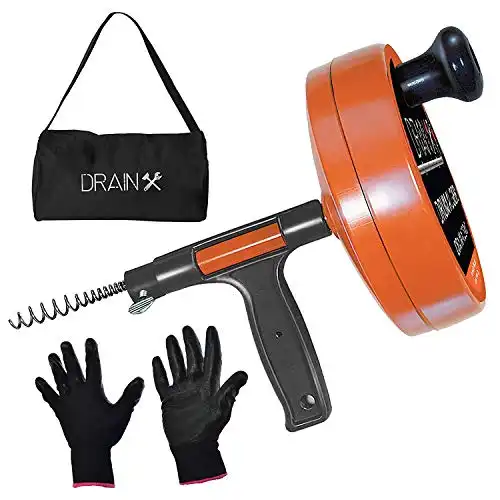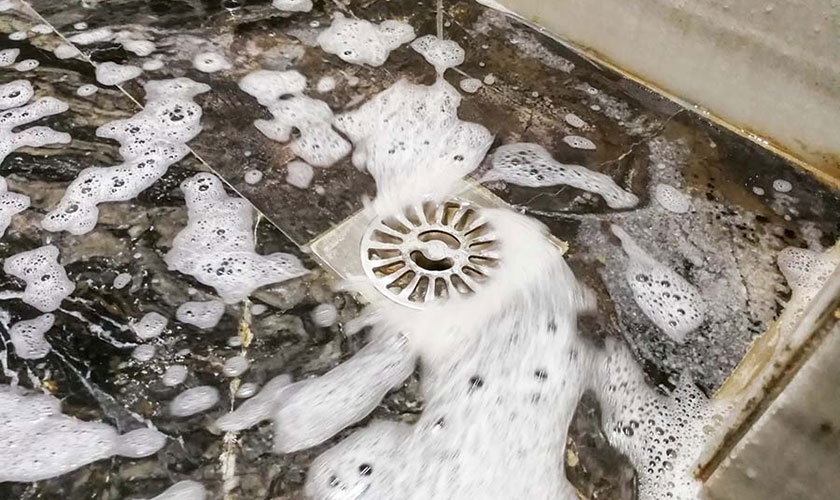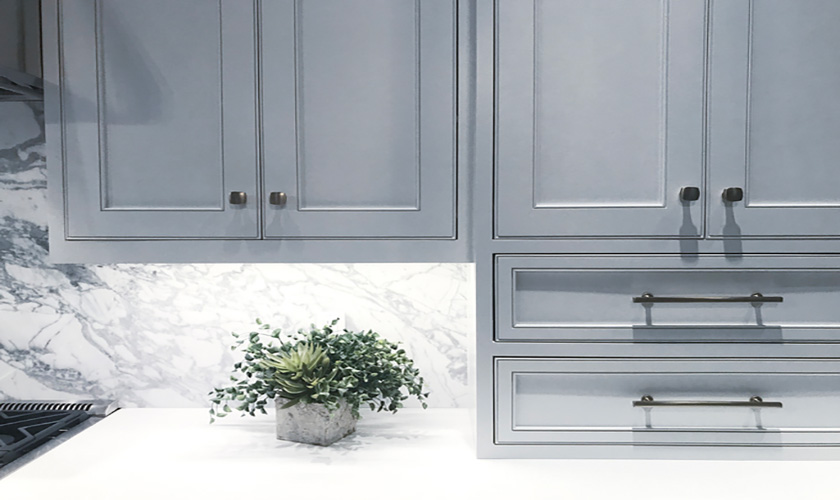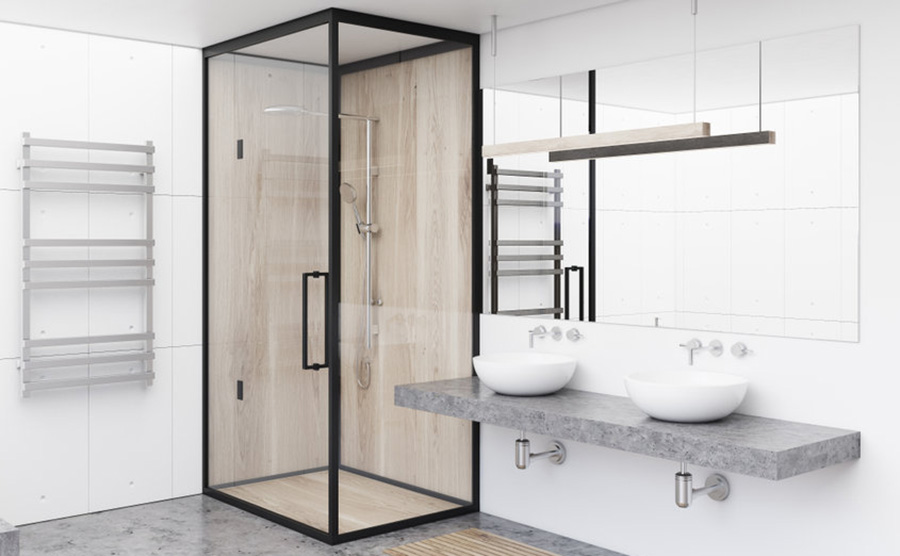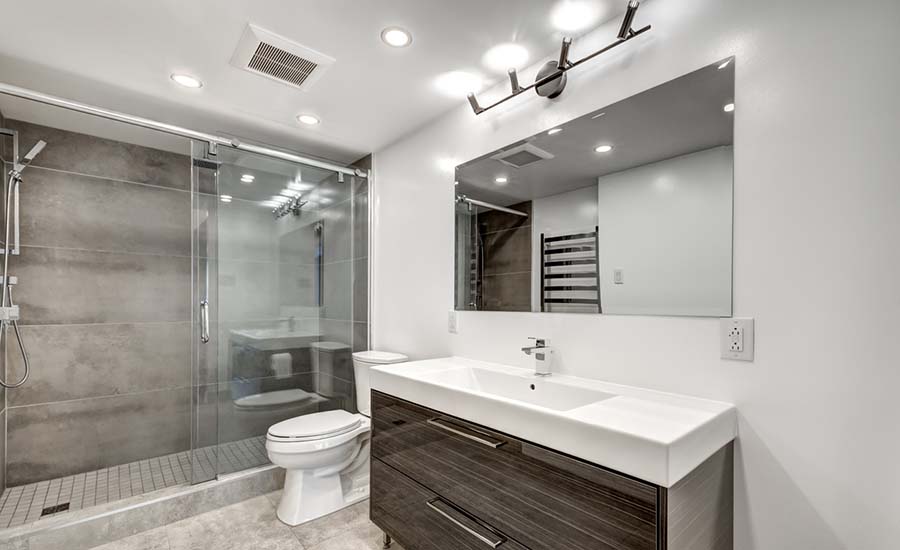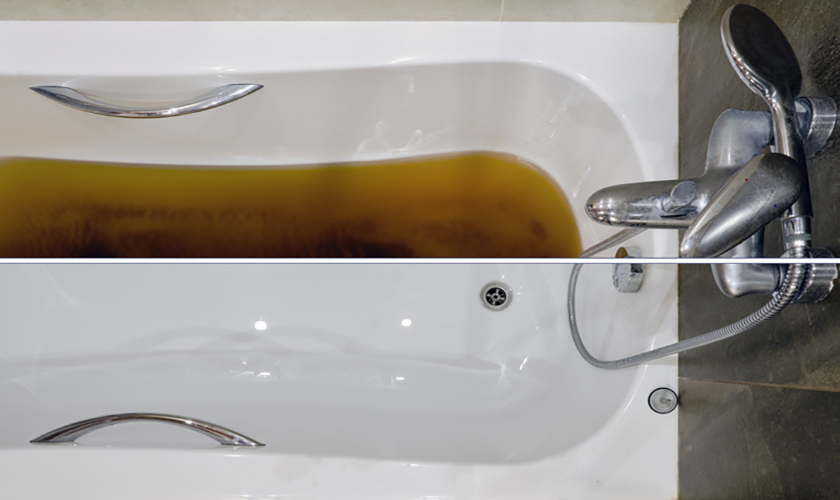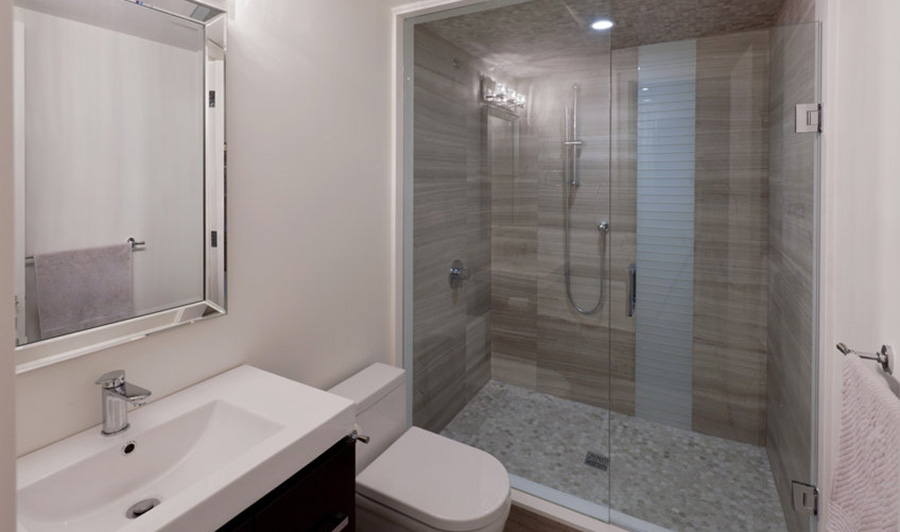You’re not alone if your toilet makes gurgling sounds and bubbling after you flush. Toilet gurgling is common. There are ways to resolve a toilet gurgling problem.
When a blockage occurs in your drain pipes, suction can cause your toilet to gurgle or bubble. Blockages often occur when flushing baby wipes down the drain pipe. Tree roots clogging the main sewer line can cause more severe cases. If air escapes, your toilet could get clogged with waste, making you have to fix it.
Get FREE quotes from licensed Plumbers in your area today. Whether you need a new water heater, a sink repair, or a toilet fixed, We Can Help! All Plumbers are screened, licensed, and insured.
When your toilet starts bubbling, you should call a plumber immediately. There are some things that you can do first. You can save money by following easy DIY methods to remove clogs from your plumbing system instead of hiring a plumber. When none of the methods work, then, by all means, get a plumber to assist.
Why is Your Toilet Gurgling or Bubbling?
Gurgling toilet noises or bubbles happen when the toilet’s drain system is blocked. This usually occurs between the toilet and the city sewer system or a septic system. Toilet clogs can cause this issue, disrupting toilet water flow and sewer gases. You can fix it with a sewer snake or hire a plumber.
When something gets stuck in the plumbing, it can cause negative pressure in the system. The air will go back into your toilet and make a gurgling noise. It may push back waste and cause the water to bubble.
Toilet Bubbles When Flushed
If a toilet bubbles when flushed, it may indicate a plumbing issue. This could be due to a clogged drain, venting problems, or a problem with the septic system. It is recommended to contact a plumber to find and fix the problem. This will prevent more damage.
Common Causes Why Your Toilet Gurgles
Okay, we know now that a gurgling or bubbling toilet is probably due to a blockage somewhere. Let us examine the areas of your toilet’s system that a blockage may impact.
It’s easy to spot a severely clogged toilet. A clogged toilet can cause a slow drain or stop it from flushing. When you flush your toilet, the water might rise instead of going down. This could happen because of a few different reasons.
- Flushing the wrong items can cause problems—for example, paper towels, baby wipes, and hygienic products.
- Children sometimes flush small toys or objects down the toilet, which can clog them.
- The plumbing system requires air to move water through the drain pipes. Insufficient venting can trap air in the plumbing system.
Is a Gurgling Toilet Dangerous
A gurgling toilet is indicative of a larger problem. A clogged drain can cause sewage backup and harm your plumbing system. If you ignore the gurgling sound, it could lead to costly repairs and health risks.
Flushing Certain Items Down the Toilet
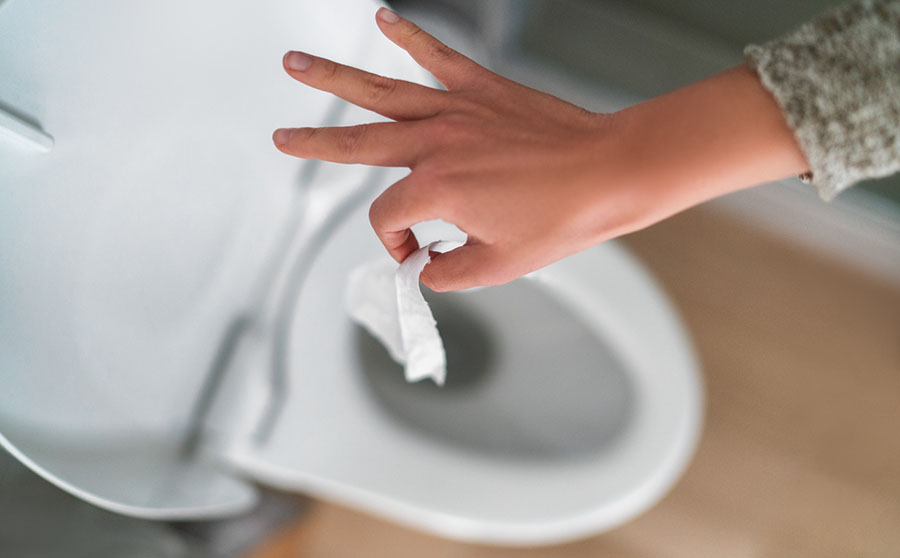
Toilet Gurgling: 6 Tips, Tricks & Home Hacks to Stop a Bubbling Toilet 8
Usually, if you flush things down your toilet that should go in the garbage, the drain gets blocked. It is best not to flush the following objects down a toilet drain:
- Paper towels and “flushable” wipes are absorbent but do not dissolve in water like toilet paper. They can easily clog your drains.
- Feminine hygiene products, like tampons and pads, can absorb water and cause pipe blockages.
- Flushing hair down the toilet may seem easy, but it can cause clogging because hair sticks to pipes.
- Don’t flush skin bandages down the toilet. They’re made of non-degradable plastic and can clog pipes.
- We sometimes flush food down the toilet, like oils, fats, and grease, because it’s convenient. It can cause issues with our drainage systems. These ingredients may start in a liquid form. When they harden and stick to the inside of the drainage pipes, they block the water flow.
- Kitty litter can introduce harmful parasites into your water supply. It can also absorb water and potentially block pipes.
- Food scraps and other solid items are hard to flush down the drain. Even worse, if you have a septic tank, solid items that make it to the tank build up and do not degrade as you might think. These items can clog up tanks and leach fields that process waste.
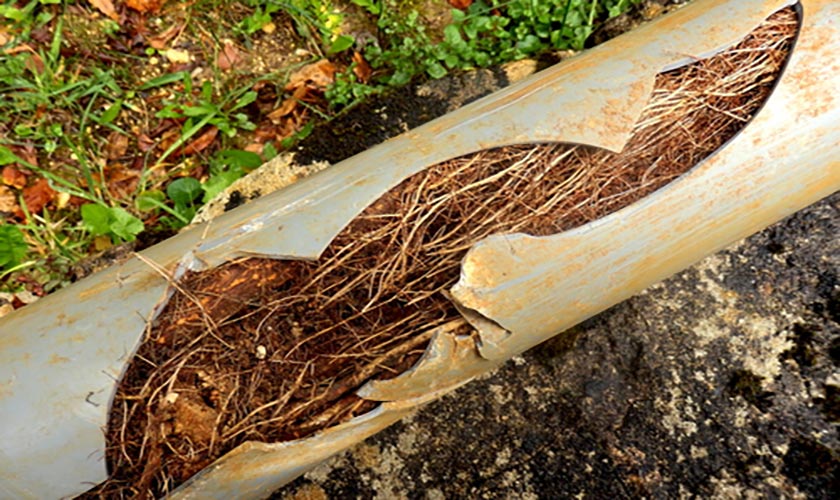
The Main Sewer Drain
All drains lead to either a city sewer drain or a septic tank. These include drains from your bathroom, laundry room, and kitchen. The main sewer drain carries all waste and water from your property to your city’s sewer system.
A septic tank is a large underground tank holding household waste and a private leaching field to spread it out.
A blockage in this part of your plumbing system can affect the whole system—events you can’t control cause it.
- Tree roots have grown through underground pipes, like the main sewer drain pipe to the city or the lines in the septic system leach field. If you think tree roots are causing a blockage, replacing the pipes from your house to the sewer is the only way to fix it.
- A “belly” pipe developing due to the shifting ground often results in a negative grade to the pipe, causing waste to flow uphill.
- Pipes have holes or separated joints from one another. If large holes exist in the drain piping, small animals can clog the pipe by nesting or becoming trapped by the carcass of a small animal.
Any of the abovementioned happenings can lead to your toilet gurgling and bubbling.
The Toilet Tank
The toilet tank holds water used for flushing the toilet. Parts inside the tank can mean the toilet tank is not filling, causing constant gurgling as water flows through the toilet and plumbing. Sediment can collect in the bottom of the tank and prevent the flapper from closing correctly.
This sediment growth can eventually:
- Block water from entering the tank.
- Cause the fill valve to sputter.
The above scenario can lead to a gurgling sound as the fill valve struggles to refill the tank.
The Toilet’s Tank Flapper
Not only can sediment buildup cause a gurgling sound, but also one of two basic implements found inside your toilet’s tank:
- Flapper
- Water Pipe
The flapper releases the water inside the tank into the toilet bowl. After that, it lifts to allow the water pipe mounted into the wall to fill the tank again. Impairment in these two mechanisms could cause a gurgling noise, such as the flapper letting air into the tank.
How to Stop Your Toilet from Gurgling or Bubbling
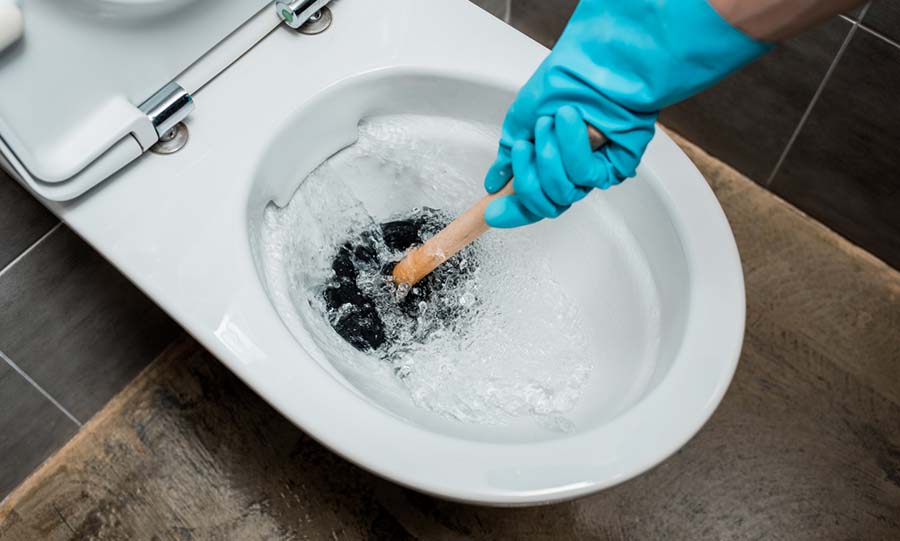
Here are some DIY ways to unblock your toilet and stop it from making strange noises. Nothing has changed after trying these helpful methods. It is best to call a professional plumber to assess for more serious problems.
1. Use a Toilet Plunger
Toilet Gurgling: 6 Tips, Tricks & Home Hacks to Stop a Bubbling Toilet 9
Arm yourself with a toilet plunger and make your way to the toilet. Before you begin, use duct tape to cover all drain areas, like kitchen sinks and tubs. To keep the air in the pipes, seal the drains and force it through your toilet.
- Place the plunger over the hole at the bottom of the toilet, push it down, and then pull it up.
- The suction you create with the plunger should draw any small to moderate clog out of the u-bend.
- Repeat this motion until the clog is brought to the toilet bowl’s surface.
Plungers are great for removing small to medium-sized clogs so your toilet can flush. Tough clogs may need a plumber’s snake if you cannot clear the clog.
2. Use a Drain Snake to Clear the Drain
Arm yourself with a toilet auger snake, drop the plunger (which did not work), and go to the toilet. An auger is a heavy-duty steel spring that you insert into your toilet bowl.
Most augers are generally fitted with the following:
- You can use ABS drum casing with a handle that extends and retracts the spring into the toilet.
- You can use a stop screw to control the spring’s movement. This helps you remove the clog by wiggling it from side to side and in and out.
- You can use a drill adaptor to insert your drill, making extending and retracting easier. It also provides more power to the spring when you locate the clog.
Drain snakes typically range from 3-25 feet. However, you can rent a drain snake ($40 to $50 per day from any home improvement store) of 100 feet or more. Remember to use this motorized version to remove your toilet from its base.
If you don’t have a drain snake, try using a metal hanger to unbend it into a long piece of wire. A metal hanger won’t reach far. If the clog is past the toilet, a clothes hanger will not work.
3. Auger the Drain Pipe from the Sewer Cleanout
You’ve cleared your toilet and used a drain snake, but the gurgling and bubbling remain. Clogs could be deeper in the drainpipe that connects to the sewer cleanout above the sewer pipe.
Don’t use regular tools to fix this issue because it can worsen the plumbing problem. If you smell gassy odors from your sewer, it could mean there are issues.
Your plumbing system can have issues from dead animals or harmful gas getting inside. They can come in through drains or other openings. You will need a professional to fix this.
If you have a deep blockage in your drain or need a thorough inspection, it’s best to call a licensed plumber. They have special tools like a plumbing auger to fix the problem.
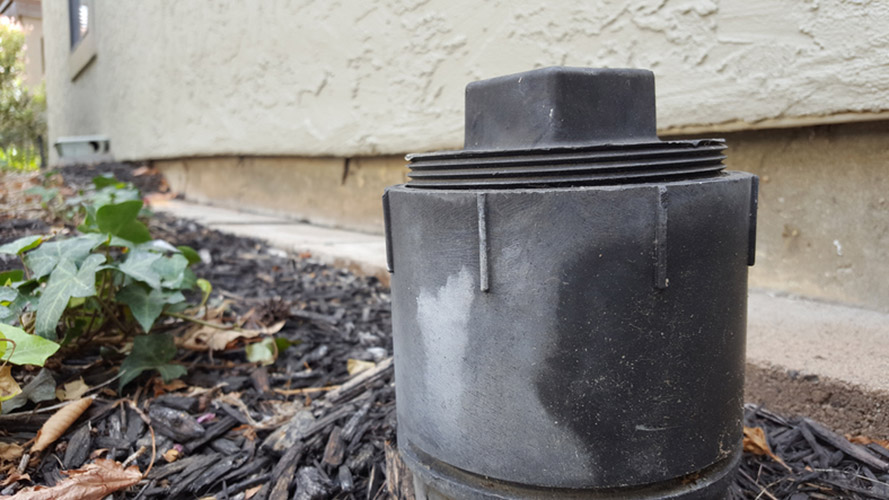
Locating The Sewer Cleanout
- Enter your basement/crawl space and see where the main sewer line exits your home.
- To unclog your sewer line, find a big PVC cap. Use an adjustable wrench to remove it. Then, use an auger to clear the line. This is done if your cleanout pipes are above the ground.
- Begin digging for cleanout pipes that end below ground; a maintenance hole might hide them. Then, use an auger to clear the sewer line from that point.
If the toilet stops gurgling, it means you cleared the clog from the sewer. If not, then we head on to the next tip.
4. Inspect and Clear the Vent Stack
To work well and avoid air locks, all homes need a proper drainpipe system with the right air pressure and flow. A blockage in the vent stack of your pipe system can restrict the airflow and cause a gurgling sound.
Getting to the vent stack requires you to get on the roof. Be honest with yourself. Hire a professional if you’re afraid of climbing a ladder and being on the roof.
If you’re good at climbing roofs, go to the vent stack on your house.
- To clean debris, wear protective gloves. You might find a dead animal blocking the pipe. Use a wire hanger if it’s within reach.
- You must inspect it further down the pipe when nothing is blocking the vent pipe at the top.
- Attach a powerful
flashlight to a rope and lower it into the pipe. You can check for a clog within 7 to 10 feet from the top of the pipe. - Lower your hosepipe down the pipe to remove deeper blockages and open it fully. This should loosen the blockage and allow it to move to the sewer.
5. Talk with Your Neighbors
There’s a good chance other residents also have a noisy, automatic toilet. Confirm with your neighbors if they are experiencing the same toilet issues.
If many people have the same problem, it might be the street side main sewer. Then, the city sewer authority is responsible.
Ring them up, and they should schedule an inspection. Any problems they find with their city-owned pipes need to be fixed.
A friend discovered that the neighbor’s house caused their plumbing problems. The neighbor’s drain pipe went through their yard to join the main sewer, which caused problems in both houses.
6. Call a Plumber
If the gurgling and bubbling problem continues even after you’ve tried, there might be a big or deep blockage in your plumbing. It may be time to hand the project over to a professional plumber.
There is no shame in this. You have tried, but the clog got the better of you. It’s happened to us all. Besides, a plumber is an expert in cleaning drains with:
- Specialized Tools (Sewer Scope Cameras)
- Powerful Augers
- Other Commercial Tools
Plumbers take care of sewer line repairs and, if need be, line replacements. Hiring a plumber has its downsides. It takes time for them to come to your house and understand your problem. Plus, it can be costly.
Toilet Gurgling FAQs
How do you fix a gurgling toilet?
To fix a gurgling toilet, first identify the cause: a blocked vent pipe, clogged drain, or faulty flapper. Inspect and clear debris for a blocked vent pipe, use a plumber’s snake, or flush water down the pipe. Try a plunger, plumber’s snake, or chemical drain cleaner for a clogged drain.
Why is my toilet making a gurgling sound?
Toilet gurgling sounds result from various issues. Blocked vent pipes, clogged drain lines, and faulty flapper valves disrupt air and water flow, creating noises. Problems in the P-trap due to infrequent use or improper installation also cause gurgling.
Should I call a plumber for a gurgling toilet?
Call a plumber for persistent gurgling, accompanied by issues or if you lack expertise. If you have a simple blockage, dry P-trap, or accessible vent pipe blockage, you can try fixing it yourself. Make sure to stay safe and ask a professional for help if you’re not sure or if the problem keeps happening.
Why does my toilet gurgle when I flush, but not clogged?
Toilet gurgling may be caused by various factors, such as blocked vent pipes or main drain blockages. It can also result from P-trap issues, air in the plumbing, or nearby appliances affecting air pressure. You should call a plumber to check plumbing vents and clear your main drain pipe.
Can a full septic tank cause toilet gurgling?
A full septic tank can cause your toilets to gurgle. It will also cause backups at sinks and bathtubs. A full septic tank indicates that the leach field is saturated and can not distribute the water volume. A full septic tank also means pumping is needed to remove the buildup of slug from the bottom of the tank.
Conclusion
Even though a gurgling and bubbling toilet may sound like something out of a horror movie, we now know it’s your toilet’s way of screaming for help. The best way to deal with the issue is to make it your mission to heal your toilet by removing clogs/blockages so the air pressure returns to normal.
In many instances, it could be out of your control, like a faulty sewer main, and then it’s up to the authorities to fix it. Applying the helpful hints above could get your toilet up and flushing again when the problem is in your pipes.
Even though it costs money, hiring a plumber is the best way to fix your plumbing problems. Gurgling and bubbling might mean a blockage or wastewater issues. You need plumbing snakes and special tools to fix complex waste or air bubble issues. These help your system work well every day.
Don’t flush things like wipes, butts, or other non-biodegradable waste down the toilet to prevent clogs. These items can block the pipe or disrupt the sewer system’s flow. If the problem continues, you may ask a professional plumber for help. They can fix the water pressure issue and ensure the bathroom fixtures work.
Get FREE quotes from licensed Plumbers in your area today. Whether you need a new water heater, a sink repair, or a toilet fixed, We Can Help! All Plumbers are screened, licensed, and insured.


